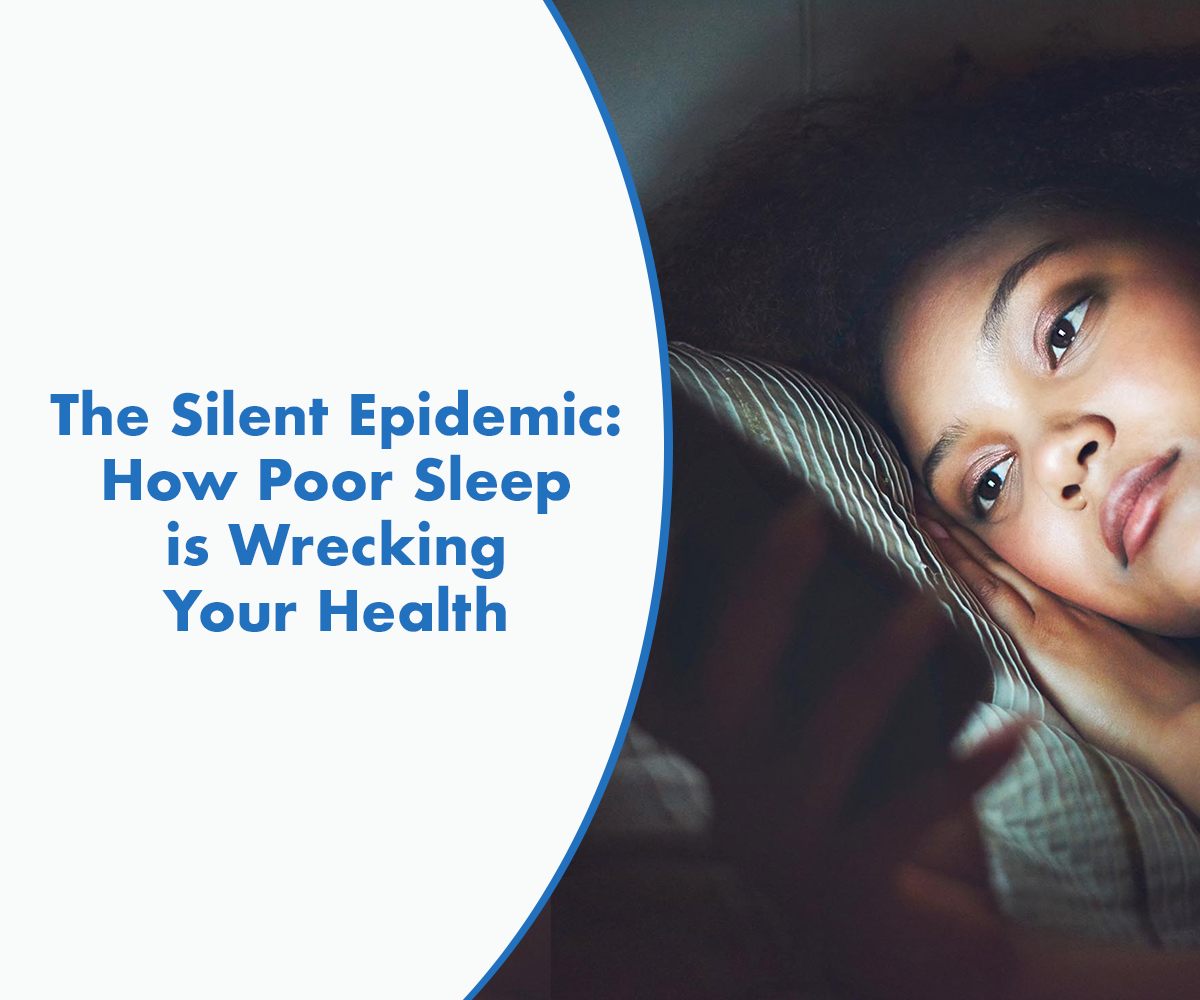There’s a hidden health crisis sweeping across the nation, and it’s happening in the dead of night. Overlooked and underestimated, inadequate sleep is silently eroding our health. Sleep is more than just a time for rest—it’s a critical component of your overall health and well-being. We believe in a holistic approach to health, and sleep is a vital part of that equation. We’re shedding light on this silent epidemic and urge everyone to take a closer look at the critical role that quality sleep plays in maintaining good health.
Sleep is not just a time to rest; it’s a crucial period for your body to heal, recharge, and prepare for the challenges of a new day. Yet, in our fast-paced, always-on society, sleep is often sacrificed, leading to a range of health problems that many don’t associate with poor rest.
Chronic sleep deprivation has been linked to serious health issues, including obesity, heart disease, diabetes, and mental health disorders like depression and anxiety. What’s more, it impairs cognitive functions such as memory, decision-making, and attention, making everyday tasks more difficult and increasing the risk of accidents.
Why We Can’t Afford to Ignore This Epidemic
The consequences of inadequate sleep are far-reaching. Studies show that adults need between 7 to 9 hours of sleep per night, but many Kenyans are falling short of this target. The resulting sleep deficit is contributing to a nationwide health crisis that is largely going unnoticed.
Sleep deprivation weakens the immune system, making the body more susceptible to illnesses. It also disrupts hormone levels, leading to weight gain and increased stress. Over time, these effects accumulate, significantly reducing life expectancy and quality of life.
How to Improve Your Sleep Health
Addressing this silent epidemic starts with recognizing the importance of sleep and taking steps to improve sleep hygiene. Here are some practical tips:
- Stick to a Sleep Schedule: Go to bed and wake up at the same time every day to regulate your body’s internal clock.
- Create a Sleep-Conducive Environment: Ensure your bedroom is quiet, dark, and cool. Invest in a comfortable mattress and pillows.
- Limit Screen Time Before Bed: The blue light from phones and computers can interfere with your ability to fall asleep.
- Mind Your Diet: Avoid heavy meals, caffeine, and alcohol close to bedtime. Opt for a light snack if necessary.
- Stay Physically Active: Regular exercise can help you fall asleep more easily and enjoy deeper sleep.
The impact of poor sleep on health is profound, and the dangers of sleep deprivation are too great to ignore. By prioritizing sleep, you can protect your health, enhance your quality of life, and combat this silent epidemic before it takes a greater toll. Remember, your health is at stake, don’t let poor sleep wreck it.


